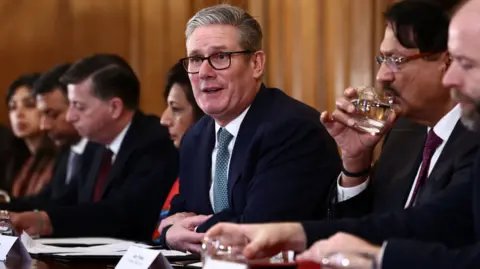In recent discussions surrounding the UK-India trade deal, opposition parties have raised significant concerns regarding its potential impact on British workers. The agreement, as presented, is projected by Labour to bring in around £5 billion annually to the UK economy. However, critics highlight that certain elements of the agreement, particularly regarding national insurance contributions (NICs), could place British workers at a disadvantage.
At the heart of this contention is the proposed extension of a NIC exemption for individuals on short-term visas from one year to a total of three years. This exemption is termed the double contribution convention, which allows workers to avoid social security payments in both their host and home countries. Critics, including representatives from the Conservative and Liberal Democrat parties, argue that this could render Indian workers cheaper to hire in comparison to British counterparts, especially in light of recent increases in NICs for UK employers.
Supporting the trade deal, the Indian government has termed the exemption a “huge win,” arguing it will greatly enhance the competitiveness of Indian service providers within the UK. While the UK maintains agreements to prevent double taxation involving multiple countries, including major economies like the United States, EU members, and South Korea, concerns remain. Workers will still be obligated to pay the NHS immigration surcharge, which some believe will offset the advantages claimed by the Indian government.
Business Secretary Jonathan Reynolds has defended the trade agreement by emphasizing that the terms are restrictive, applicable solely to professionals being transferred between Indian and UK companies. He stated that this arrangement is similar to those currently in place with various other nations. Furthermore, Reynolds reassured that those working in the UK will continue to pay necessary taxes and remain ineligible for certain benefits typically derived from NICs.
Interestingly, while the exemption is projected to provide competitive advantages to Indian employees, it could also apply to British workers engaged in professional relocations to India. Despite this, Conservative leader Kemi Badenoch voiced her objection to this specific trade-off during her tenure as Business Secretary, remarking that it constituted a two-tier tax system potentially costing the UK hundreds of millions. She cited her refusal to endorse a similar arrangement due to a belief that it favored Indian workers excessively at the expense of UK nationals.
Liberal Democrat deputy leader Daisy Cooper critiqued the government’s handling of the trade deal, calling the NIC plans “half-baked.” According to her, the agreement risks undermining UK businesses’ competitiveness amidst tumultuous global trade conditions exacerbated by the ongoing trade war initiated by US President Donald Trump. Criticism further ramped up when Cooper expressed discontent regarding the government’s lack of a proper impact assessment, stressing the necessity for parliamentary review before finalizing such agreements.
On his part, Reform UK leader Nigel Farage pronounced the deal “truly appalling,” accusing the government of neglecting the welfare of the British workforce. He vocally condemned the Labour Party, claiming they have betrayed working Brits amidst these negotiations. In response to growing concerns, a Labour spokeperson defended the agreement by stating that Indian nationals aiming for jobs in the UK would not benefit from the NIC exemption, arguing that the trade deal would ultimately bolster British businesses and lead to job creation and wage growth.
As the discourse around the UK-India trade deal progresses, it underscores the tensions inherent in balancing economic growth with the protection of domestic labor rights. As opinions continue to diverge, it is apparent that this deal will be a focal point in upcoming political discussions. The balance between fostering international trade relations and safeguarding the interests of local workers is a delicate goal, one that will likely shape policy debates and decisions in the future.



